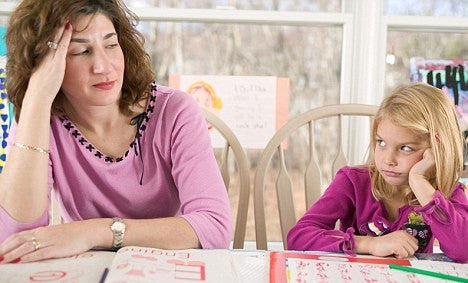
When Children and Clients Are Not Our Favorites by Mirel Goldstein, MS, MA, LPC
One of the biggest challenges for parents is when they have feelings toward their children that feel "wrong." Some parents find it difficult to love a particular child. A parent may “play favorites” in his/her heart, trying desperately to hide this from their children. This is sometimes done by overcompensating in an excessive outward show of love to the child who is “second best”.

Angry feelings, difficulties with love, seeing parts of ourselves we don’t like in our children… these are only some of feelings that can pose a challenge. Some children seem so good at reading us, taking care of us, and attuning themselves to our emotions- that it becomes hard not to relate to the child in a role reversal and to allow ourselves to be taken care of by the child. (After all, we are all children at heart, and when someone treats us with such sensitivity, it can certainly be seductively sweet). Feelings of attraction and romantic allure towards one’s children, especially teenage ones, can be equally threatening to a parent as well. We may also identify so strongly with a given child that we lose track of ways in which this child is different from us. Therapists, much like parents, also have to cope with feelings towards their patients that, at times, don't feel right. Therapists must work to find a careful balance between accepting and owning feelings that exist, while also being careful not to overwhelm the relationship or sitting with feelings that can be disruptive. For some of us, this is a skill that only comes with years of practice.
Strategies that may be useful for parents and therapist alike include being aware, being accepting, and containing. Awareness involves noticing feeling in the body, purposely monitoring consciousness & thoughts, and staying alert for subtle, out of conscious awareness, behaviors. Accepting feelings is about being mindful and non-judgmental. At times parents and therapists may need to affirm their right to have the feelings they have, and remind themselves that feelings are not good or bad. Most of the time negative feelings will pass. Containing feelings is about holding back from acting and reacting, and maintaining a calm demeanor even when feeling ruffled. The more aware parents are of their feelings toward their children, the more they can manage emotional and behavioral responses. The rewards of parenting are greatly enhanced, as is the experience of being a therapist, when we develop strategies and skills to manage all of our feelings and reactions.
For more resources check out Childswork.com!
Mirel Goldstein, MS, MA, LPC is a licensed therapist with offices conveniently located in Clifton NJ and Fort Lee NJ; she is a graduate of Columbia University, with over 14 years of experience successfully counseling both couples and individuals. Mirel specializes in the treatment of relationship issues, trauma, and anxiety disorders. Mirel maintains her private psychotherapy practice in addition to her responsibilities as a college teacher, author, and popular lecturer. Mirel is the former online training administrator for the International Society for the Study of Trauma and Dissociation and authored the novel “What Your Therapist is Really Thinking”; she is also a past recipient of an award for her clinical work by the New Jersey Association for Mental Health and Addiction Agencies.

Leave a comment